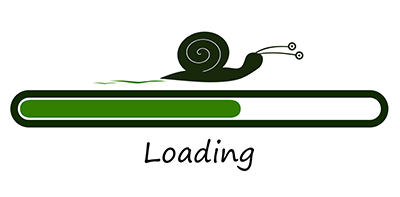Why is my content management system so slow?

- Dec 9, 2010 modified: Aug, 01 2025
Why is my content management system so slow?
Imagine running up a hill with a backpack carrying a bunch of rocks you didn't need. Some websites act in a similar way as the rocks in backpack analogy. Content management systems (CMS) like Joomla, Drupal, Wordpress and Magento allow designers to put together sites easily.
In doing this they usually have plugins that contain libraries of code.
They also have to make numerous calls to a database as page content is usually stored in a database.
Some of these pages "have enough code to land the Space Shuttle!"

Ok an exaggeration - so do I have anything better? - Yes
Compare the speed of this site to your site innercalminc.com.au
- and if there is a major difference it could be due to the following factors -:
- Each page only contains code it needs to run
- Not every page needs to connect to a database
- The code is optimised and validated and cut to a minimum
- Any connections to a database sit on the same server as the website
- It is hosted on an optimised dedicated server for my clients only
If these sites are up to ten times faster than your existing site and you are aware Google rewards sites that are reliable well coded and fast you may also notice these sites do very well in Google on the following term -: Marriage Counsellor Gold Coast
Check some SEO info on site speed where it discusses the use of plugins often not used correctly.
if you would like a free appraisal of your site please call Phil on +61 07 55320651
Also check our page on web spped tests it has links you can use to test your site.
2025: Latest Example

An example of a super fast website as tested by Pingdom Tools. Load time is 456 ms with only 20 requests.

Another example with 381 ms load time and only 18 requests - as measured by Pingdom Tools
Why is 18 requests significant?
The more HTTP requests a webpage makes, the slower it will load. Each request introduces a delay, and when combined, these delays can significantly impact overall page loading time.
Some resources, like CSS and JavaScript, can block the rendering of the page until they are loaded. Each HTTP request involves multiple steps (DNS lookup, connection setup, data transfer). These steps add to the overall time it takes to load a webpage. Many CMS systems include themes with multiple files - many aren't even used on the page.
Key Features of Image Manager Admin System
![]() Easily add bulk images, galleries, slide shows even animated gifs
Easily add bulk images, galleries, slide shows even animated gifs
![]() Email your subscribers directly from your website - measure response
Email your subscribers directly from your website - measure response
![]() Add Short Links to measure clicks
Add Short Links to measure clicks
![]() Add audio to your site
Add audio to your site
![]() Create amazing blogs that improve SEO - measure views
Create amazing blogs that improve SEO - measure views
Search News Articles...
Recent Articles

Keywords no longer as visible in GSC
- Jan 12 2026
- /
- 261

Unique Web Systems Matter in a World of Sameness
- Dec 26 2025
- /
- 180

Most AI Websites Fail to Rank
- Nov 18 2025
- /
- 416

Sitemap.xml Best Practices
- Oct 14 2025
- /
- 2070

Fake Reviews on Google My Business
- Oct 07 2025
- /
- 619

Sending Emails from Code
- Sep 17 2025
- /
- 688

US Tariff Shifts Undermining eCommerce
- Sep 05 2025
- /
- 865

Small Business Success Formula
- Aug 23 2025
- /
- 633

Do Strong CTAs Help or Hurt Your Website?
- Jul 31 2025
- /
- 857

AI Crawlers vs Search Crawlers
- Jul 04 2025
- /
- 1154
View All News Articles
Categories
A Gold Coast SEO and Web Developer